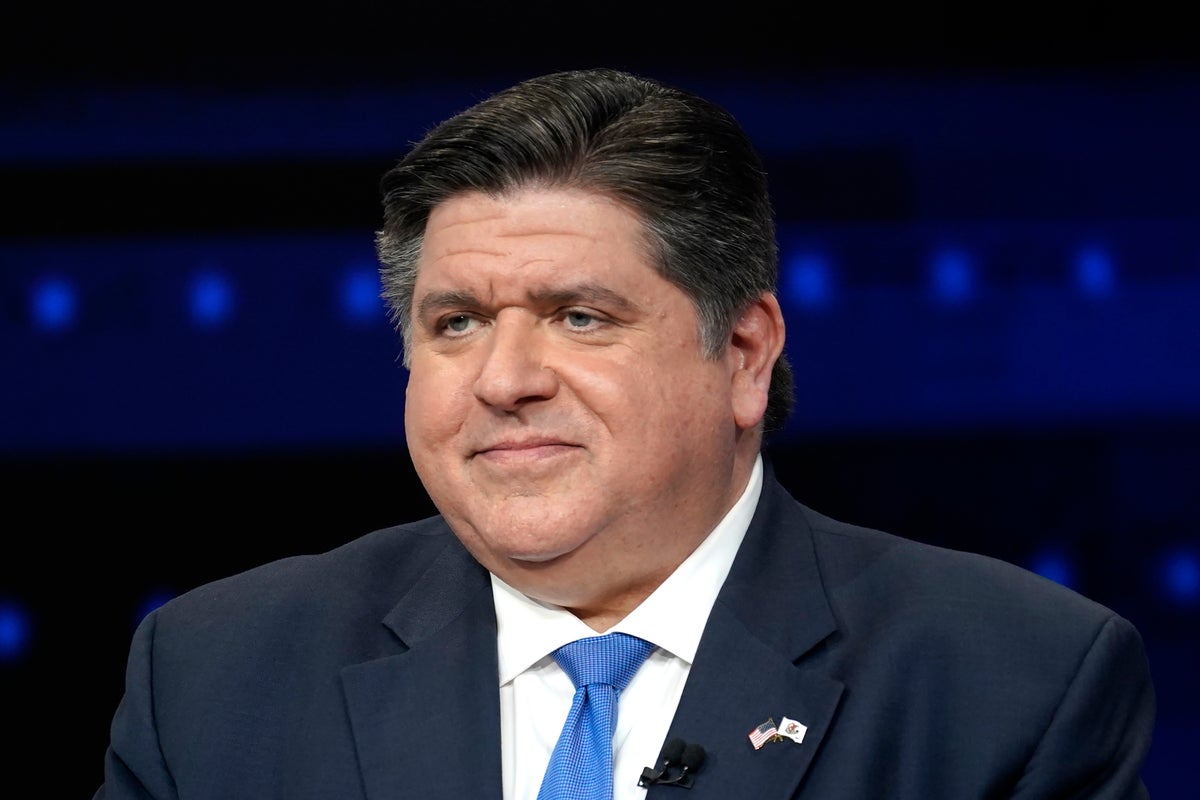
The Democratic governor of Illinois and his Republican challenger have accused each other of being out of touch and too extreme ahead of Tuesday’s election.
Gov. J.B. Pritzker took office in 2019 after trouncing an increasingly unpopular GOP Gov. Bruce Rauner, whose quest for a far-reaching conservative agenda was stymied by a powerful Democratic-controlled Legislature. Now Pritzker argues that his opponent, state Sen. Darren Bailey, goes beyond Rauner's ideology and is “too extreme” on issues such as abortion access and restrictions on guns, and has no concrete proposals to reduce crime or bolster education or human services.
Bailey says that the 57-year-old billionaire equity investor and philanthropist's drive to be “ the most radical leftist governor in America” is decimating the state by coddling criminals, offering abortion without restriction and spending too much on social programs.
Pritzker campaigned this year on balancing the budget for four years, offering $1.8 billion in taxpayer relief last spring, and paying down a mound of debt, mostly in overdue bills to vendors. But spending has increased, partly because of federal COVID-19 pandemic relief dollars that Bailey said were used to balance the books. Pritzker has stressed that money was used for one-time relief measures.
Bailey, 56, has made crime in Chicago a centerpiece of his campaign and was buffeted by ridicule when he called the nation's third-largest city a “crime-ridden corrupt hellhole." That prompted him to rename it “Pritzkerville” because “every one of Gov. Pritzker's extreme policies are destroying the city.” Pritzker pointed to investments in state police and crime detection, provisions he's quick to point out Bailey voted against. But the Republican says he opposed those moves as part of massive legislation drafted with little of his party’s input.
A farmer from the southern Illinois town of Xenia, Bailey strongly supports gun rights while the governor wants to ban semi-automatic rifles. Bailey has mocked him for not getting that done in four years with supermajority Democratic control of the House and Senate.
Despite the likelihood that control continues, Bailey has vowed to repeal the SAFE-T Act Democrats adopted last year, a criminal justice overhaul that sets new standards for policing and discipline, restricts the use of force against criminal suspects and ends the use of cash bail for violent offenders.
Eliminating cash bail means pretrial freedom for people suspected of horrendous crimes, Bailey contends. Pritzker says judges will be able to keep violent suspects locked up and prevent the wealthy from buying their freedom while awaiting trial.
Abortion access has made headlines in races nationally after the Supreme Court overturned the 50-year-old Roe v. Wade opinion legalizing the procedure. Illinois has no restrictions on abortion before fetal viability of 24 to 26 weeks or after that period to preserve the patient's health or life.
Bailey opposes abortion, in particular taxpayer-funded abortion, and he objects to any expansion of access to the procedure. However, he has pledged that restrictions on abortion are not on his agenda because with Democrats likely to keep a stranglehold on the Legislature, no such restriction would reach his desk.
___
Follow John O’Connor at https://twitter.com/apoconnor







